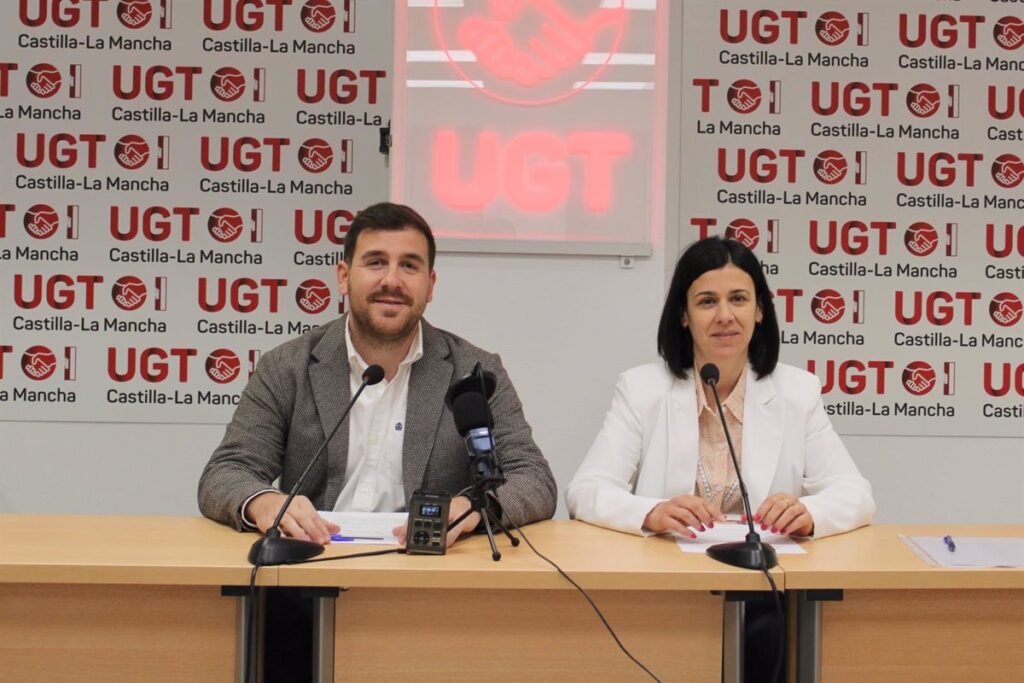UGT Castilla-La Mancha’s Secretary of Organization and Occupational Health, Javier Flores, has stated that the issue of digital stress must be addressed through Collective Bargaining, incorporating the right to digital disconnection in different Collective Agreements. Along with the regional coordinator for Occupational Risk Prevention at the union, Irene Ortega, they presented the campaign ‘Workplace Technostress: The Right to Digital Disconnection’ in a press conference. The project will take place within the framework of World Day for Safety and Health at Work, celebrated on April 28th.
The campaign will launch on April 27th with a regional conference to be held in Ciudad Real, where various experts will delve into the problem of Workplace Technostress, a palpable issue in today’s society due to the implementation of new technologies in the workplace, particularly in telecommuting. This conference, as the union has reported in a press release, serves as the starting point for this ambitious campaign.
«During this conference, we will present an educational and awareness video on the importance of the right to digital disconnection for all workers. We will also have members from the regional government, the Labor Inspectorate and Social Security, as well as the Arbitration Board, who will share their experiences on how to intervene in these types of cases,» explained the union’s Secretary of Organization and Occupational Risks.
Furthermore, UGT will feature the Secretary of Occupational Health of UGT Spain, Ana García de la Torre, a psychologist from the UGT team, and a lawyer from the union’s legal service, who will explain how the union deals with this issue and how active listening, often hidden, by the unions often prevents these cases from going to court.
UGT’s regional coordinator for Occupational Risk Prevention, Irene Ortega, also emphasized the importance of training workers on this matter so that they are aware of the legal landscape and their labor rights to prevent risk scenarios that endanger mental health in the workplace.
Additionally, as emphasized by Ortega, the appropriate regulation for the right to digital disconnection must be the Law on Occupational Risk Prevention and not the Data Protection Law as it has been until now. «UGT proposes a series of regulatory changes that prohibit employers from communicating with their employees during their rest periods and that establish a deterrent sanctions regime. Also, it is necessary to introduce the Worker Burnout Syndrome in the Catalog of occupational diseases of Social Security,» Ortega stated.



















